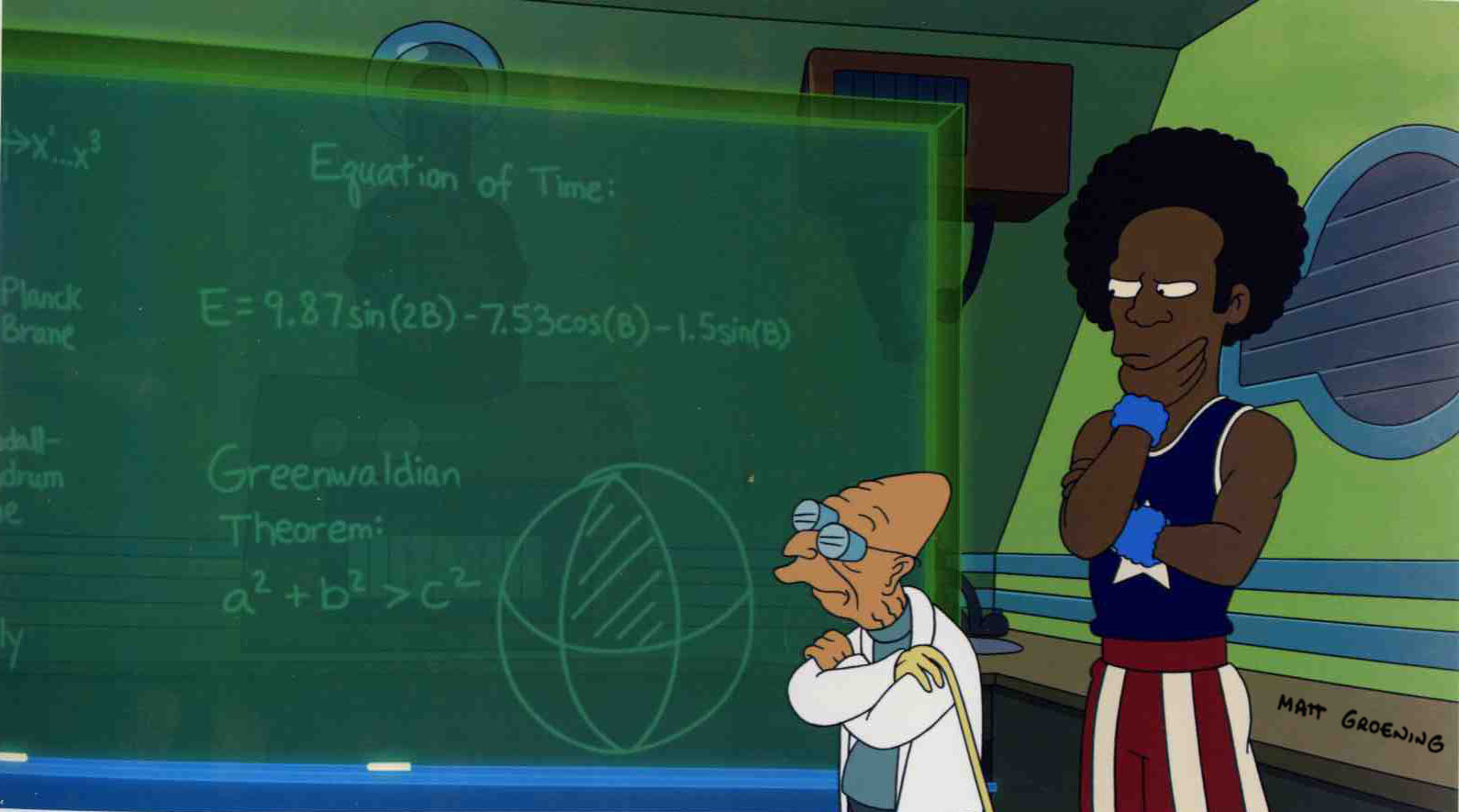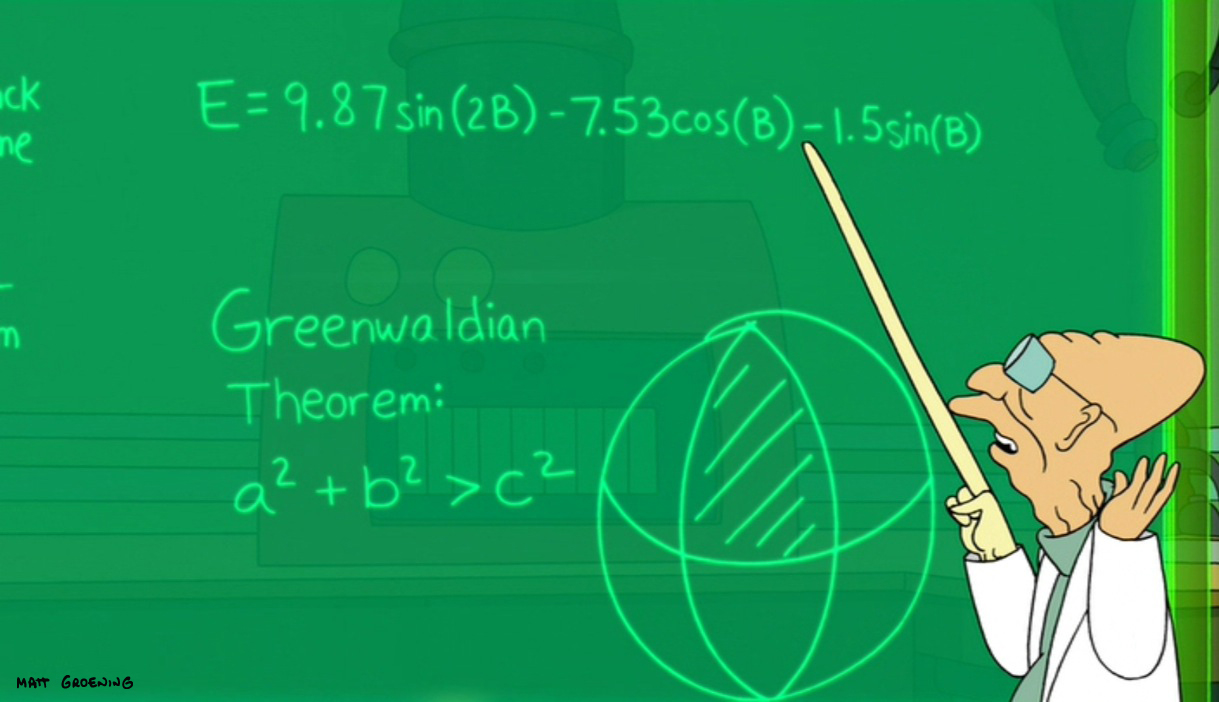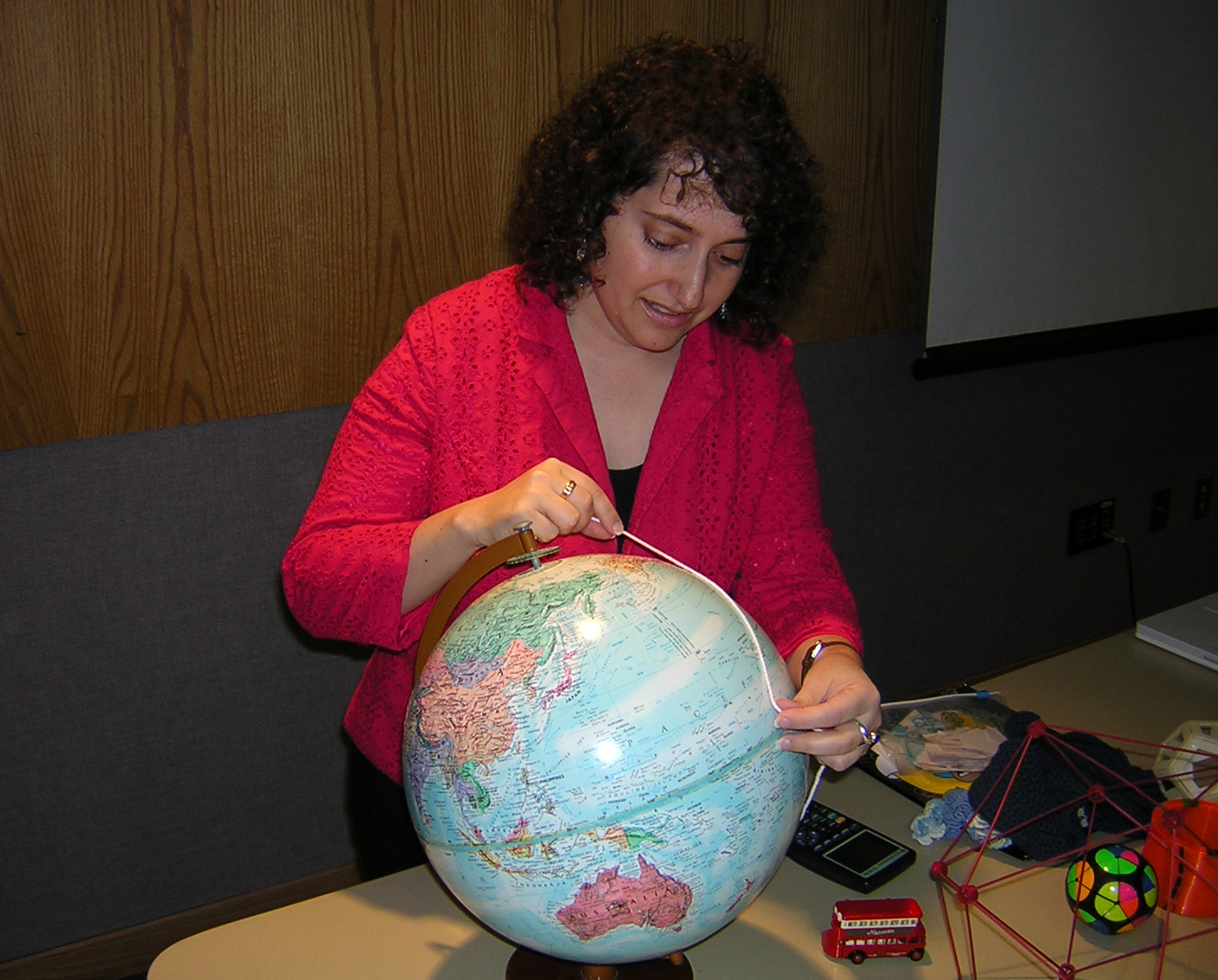Good News Everyone! Mathematical Morsels from The Simpsons and Futurama
Did you know that The Simpsons and Futurama contain hundreds of humorous mathematical and scientific references? What curious mathematical object is used as a bottle for beer in the 31st century? What happens when Homer tries to emulate Thomas Edison? What is the significance of the number 1729? The only prerequisite for this talk is an open mind, so come find out!We'll explore the mathematical content and educational value of some favorite moments along with the motivations and backgrounds of the writers during an interactive talk. Popular culture can reveal, reflect, and even shape how society views mathematics, and with careful consideration of the benefits and challenges, these programs can be an ideal source of fun ways to introduce important concepts and to reduce math anxiety. In the process we'll look at related, recent work in geometry and computational number theory so a calculator and writing utensil will be useful. For more information, check out SimpsonsMath.com.


Bender's Big Score: Greenwaldian Theorem
Pi-day with The Simpsons and Futurama
What can you do with a degree in mathematics? An easier question might be to ask what can't you do? Did you know that The Simpsons and Futurama contain hundreds of humorous mathematical and scientific references? Come celebrate pi-day with The Simpsons and Futurama as we explore the mathematical content and educational value of some favorite pi moments along with the motivations and backgrounds of the writers during an interactive talk. Popular culture can reveal, reflect, and even shape how society views mathematics, and with careful consideration of the benefits and challenges, these programs can be an ideal source of fun ways to introduce important concepts and to reduce math anxiety.Popular Culture and Mathematics: Broader Implications
Mathematics is pervasive in modern society, and on some level we all use mathematics in our daily lives. Have you ever known anyone who asserted that they do not have the "math gene"? Where do those messages come from? Popular culture can reveal, reflect, and even shape how society views mathematics and mathematicians, and we'll analyze examples from a variety of shows and films. We'll also discuss the active role that students and faculty can take to put theory into practice in and out of the classroom in order to counter messages about who can do mathematics. There are also opportunities to contribute to scholarship in this area.The Association of Women in Mathematics: How and Why It was Founded, and Why It's Still Needed
Founded more than 50 years ago, during a surge of feminist and civil rights activities, AWM is the oldest organization in the world devoted to women in mathematics. We'll look back at how and why AWM was formed and learn about why it's still vital in today's culture and the active role that students and faculty can take.Geometry of the Earth and Universe
The quest to understand the precise geometry and shape of our universe began thousands of years ago, when mathematicians and astronomers used mathematical models to try and explain their observations. We'll explore historical and current theories related to the geometry of the earth and universe during an interactive talk. A globe or child's ball will be useful.
Rubik's Cube Games on Spheres: My Geometry Story
My geometry story focuses on understanding spaces but also illuminates the importance of mentors and co-authors. We'll begin with my experiences during my first year of college and continue with surfaces and polyhedra. Then we'll slice up basketballs in order to form new spaces like footballs and triangular pillows, called orbifolds. Orbifolds furnish a natural starting point for the study of singular spaces and they are especially of interest to mathematicians and physicists. Diverse applications of orbifolds include connections to crystallography, string theory and music theory. Many results, such as those requiring local analysis, generalize easily to the orbifold setting, but most global results do not. Imagine a spherical Rubik's game where you can rotate spherical triangles on the surface of the sphere. This game exists and is called the Impossiball and we'll use it to help understand orbifolds as we look at examples related to the diameter, Euler characteristic and spectrum.
Impossiball
Legal Notice: The Simpsons and Futurama TM and copyright Twentieth Century Fox Film Corporation. The images on these pages were taken from episodes of The Simpsons and Futurama that is copyrighted by Twentieth Century Fox. This web site is for educational use only. Related content is not specifically authorized by Twentieth Century Fox.